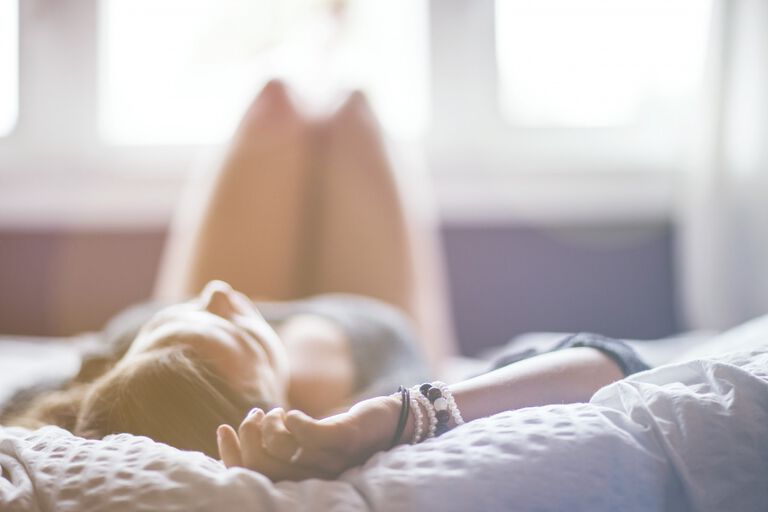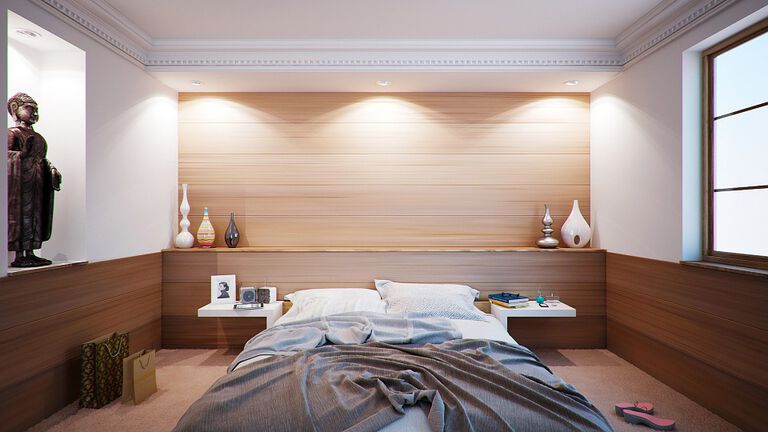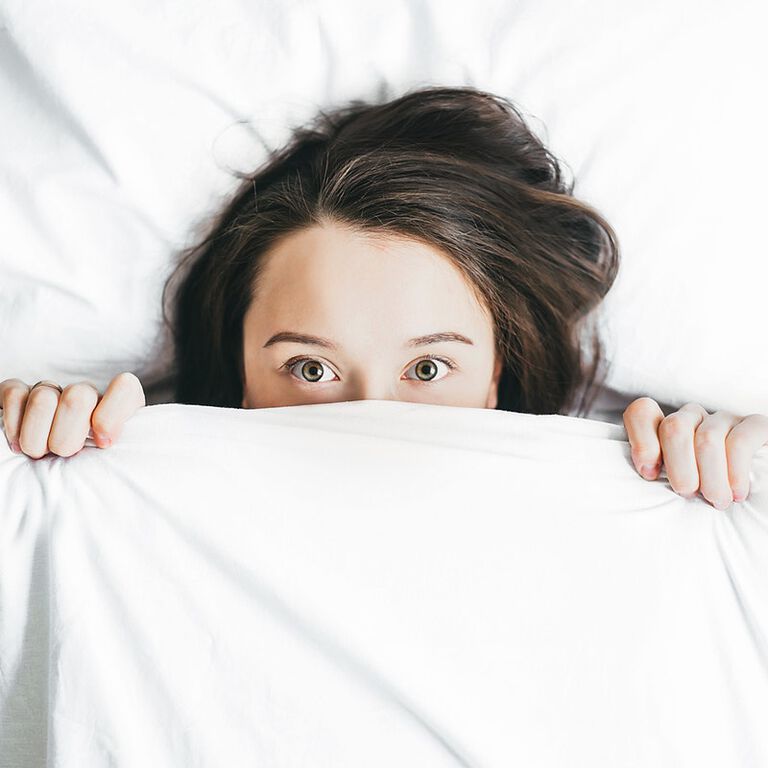TEENS AND SLEEP
Dr Alice McNamara

It has been described as the perfect storm. Sleep is crucial for neurocognitive and behavioural development in adolescents and teens, but for many reasons they get less of it. It was once thought that as children get older, their requirements for sleep decline, but this could not be further from the truth. Reality is that the typical behaviours and stresses like school, social life, sports and extracurricular commitments, technology (all the important stuff!) take priority over sleep.
As kids get older and can “cope” with less sleep, that’s exactly what they do. Until they crash, become run down, contract glandular fever, chronic fatigue syndrome, or worst, fall asleep at the wheel in the early years of driving. The day to day effects of sleep deprivation in teens are similar to the rest of us; tiredness, slower cognition, irritability, effect on mood and motivation, heightened anxiety, depression and weakening of the immune system.
SO HOW MUCH SLEEP DO TEENS NEED?
Teenagers need between 9 and 10 hours of sleep every night. Yet most teens sleep only about 7 to 8 hours and often much less, particularly in the older secondary school years.
One study done by a group from the USA took adolescents aged 11-15 years, set them up with a 10-hour sleep schedule for 10 to 14 nights and then studied their sleep in a lab for three consecutive 18 hour nights. They found that given no external pressures, this age group slept nearly 12.5 hours on average the first night and by night 3 still slept an average of 10.1 hours. So we know with no alarm clock, they could just keep going.
SLEEP IN TEENS HAS BEEN WIDELY STUDIED ACROSS THE WORLD.
Cross-culturally adolescent students are under pressure to start serious study or work to support themselves and family, and at the same time their social life gains importance. Interestingly in Korea, many students (71.1%) take additional evening course work, and for 54.5% of students this means until midnight or later. Asian parents and students focus heavily on preparing for academic placement tests. In the USA and Australia, excessive amount of homework and study coupled with the distractions of social media push bedtimes later. Korean students in Years 11 and 12 reported their weekend bedtime was in fact earlier than on school nights. The opposite was true in the USA, Australia where weekend nights are later… for various other potential reasons.
In the USA and Australia, restriction on teen sleep hours usually is felt in the morning, where the school start disrupts their natural sleep pattern. The US school system schedules secondary school bell times an hour earlier than primary school times. And, if an early bell time wasn’t enough, many students are involved in before-school activities like sport, music or a long commute time, pushing the alarm clock even earlier.

GOING TO BED LATE IN TEENS CAN LEAD TO CIRCADIAN PHASE DELAY.
Adolescence involves a stage of psychological developmental where they yearn for independence in many areas of their lives. That includes how they study, how they socialise and the decisions around when to go to sleep. Often sleep is not a priority. As just discussed, psychosocial forces collude to push bed times later, thus teens want to sleep-in late. But as we just said school hours are timed to begin earlier across adolescence, and so sleep time is reduced as a consequence.
The circadian rhythm in many teens is shifted to a delayed phase, and for some adolescents, the issue can present as sleep-onset insomnia.
The solution to shifting a delayed circadian phase backwards, to fit with the confines of rigid school hours is not always quick or easy. The only modifiable hours to expand sleep into are the evening times, so the holy grail is to slowly target appropriate bed-times. It may involve parents and the teen working together with perhaps a counsellor or paediatrician. It will involve some practical and logistical changes, small measures, like managing jet-lag.
Education around the importance of prioritising sleep is important, with the goal to empower adolescents to make informed choices about their sleep schedules. Parents and doctors can help by encouraging schools to limit late-evening activities, by discouraging evening caffeine, and by making bedrooms a “device free zone” limiting late night blue-light exposure. There are now apps that limit social media times so parents can enforce a social media de-clutter between i.e. 8pm-7am (try Block Social Media, or Curbi Parental Controls).
And – this is my personal key take away – exercise in the daylight plays a very important role in adjusting any circadian rhythm disorder, jet-lag and this circadian phase delay alike. Encourage teens to get active outside; play team sports, run, cycle, swim, row. This does two things; resets their body clock, and tires them out so they can think of nothing nicer than crawling into bed.
SLEEP HYGIENE AND THE USE OF MELATONIN.
There is much discussion around the use of medication to help with teenage insomnia. Medication may in some rare occasions have a role, but my major concern in medicating kids is the slippery slope that sleeping aids have to addiction and dependence. We should minimise use at all costs.
Melatonin is a supplement that mimics the natural hormone produced by a gland in the brain in response to the dark stimulus created as the sun goes down. It is often used in shift workers and for jet lag as it can help regulate the body clock. It’s been shown to allow some children to fall asleep faster and keep them asleep for a few hours longer. However, like most things in Medicine, (especially involving kids and a daily habit) it is vital to exhaust non-pharmacological strategies like behaviour and sleep hygiene before resorting to medication.
Dr Margie Danchin from the Royal Children’s Hospital in Melbourne gives some good advice:
The premise here is to give the teen the maximum chance to release their own (endogenous) melatonin. Limiting screen time (consider those apps mentioned before), coupled with good exercise and exposure to natural light should help.
There are some medical conditions like vision impairment, autism, and ADHD where sleep routines are very difficult to get on top of, and for parents of these children, melatonin has been shown to help with sleep and cautiously, shown some improvement in behavioural problems.
Melatonin is available in a few forms so buyers should be careful. It comes in a homeopathic dose from the pharmacy that is often not labelled so dosing unclear. I would opt for prescription option that comes between 1-3mg, immediate or slow release and has the added benefit that you chat to a doctor first. It should be given at least one hour before bedtime, and as a general rule you should choose low doses as they are often just as effective.
If the medication has effectively helped shift the teen’s circadian rhythm to a more appropriate bed time, it has done the job and can be weaned and ceased.
SHOULD PARENTS SET BED TIMES?
Just as we described before, teens naturally begin to set their own bedtimes as they practice their independence. But, many parents know that the opposite is true for the wake up times! Often the mum or dad alarm clock is necessary on school mornings, and this seems to deteriorate with age. Studies describe older children reporting they often need a parent or alarm to wake them up, where as primary school children much more likely to say that they “just wake up”.
So should parents help? One great study in the US in the 90s showed that young people, whose parent set their bedtime at midnight or later relative to those with bedtimes set at 10pm or earlier, were significantly more likely to suffer from depression or suicidal ideation. So, I’d say gently, yes. Bed time is probably not the crucial factor here, but sleep hours. Australian studies have also shown adolescents with a parental-set bedtime reported earlier bedtimes, more sleep, and experienced less daytime fatigue.
SO – SOME FINAL TEEN SLEEP TIPS:
- Ensure they have the opportunity to get lots of physical activity done during the day, preferably outside in the light.
- Set a consistent alarm time each morning, and vary it by no more that 2 hours on a weekend.
- Consider helping teens set a consistent bed time, by counting back 9-10 hours from required get-up times.
- Avoid drinks that contain caffeine from late afternoon (e.g. tea, coffee or soft drinks) if going to sleep or frequent waking is a problem.
- Set a good bed time routine including time to wind-down before going to bed, avoiding social media and blue light devices. Timing apps can help.
- Aim to stop work or study at least 30 minutes before bedtime. This may take some strategic weekly planning to fit it in. Studying when exhausted is rarely effective.
- Remember to see your doctor to discuss things if sleep is becoming a problem
Further reading:
Andrade MM, Benedito-Silva AA, Domenice S, et al. Sleep characteristics of Adolescents: A longitudinal study. J Adol Health.
Carskadon MA, Acebo C, Seifer R. Extended nights, sleep loss, and recovery sleep in adolescents. Arch Ital Biol. 2001; 139(3):301–12.
Carskadon, MA, Sleep in Adolescents: The Perfect Storm, Psychiatry and Human Behaviour; Pediatr Clin North Am . 2011 June ; 58(3): 637–647.
Danchin, Dr Margie, RCH Blog) https://blogs.rch.org.au/drmargie/2015/12/13/melatonin-for-sleep-should-i-use-it/ Accessed 16/5/18.
Gangwisch JE, Babiss LA, Malaspina D, et al. Earlier parental set bedtimes as a protective factor against depression and suicidal ideation. Sleep. 2010; 33(1):97–106.
Katz, T: Solving Sleep Problems in Children with Autism Spectrum Disorders: A Guide for Frazzled Families.
Khalsa SB, Jewett ME, Cajochen C, Czeisler CA. A phase response curve to single bright light pulses in human subjects. J Physiol. Jun 15; 2003 549(Pt 3):945–52.
Short MA, Gradisar M, Wright H, Lack LC, Dohnt H, Carskadon MA. Time for bed: Parent-set bedtimes associated with improved sleep and daytime functioning in adolescents. Sleep. 2011 Jun 1;34(6) 797-800.
Yang CK, Kim JK, Patel SR, et al. Age-related changes in sleep/wake patterns among Korean teenagers. Pediatrics. 2005; 115(1 Suppl):250–6.
Feel it for yourself
Find a Tempur store or Stockist and try out our range of mattresses for yourself




